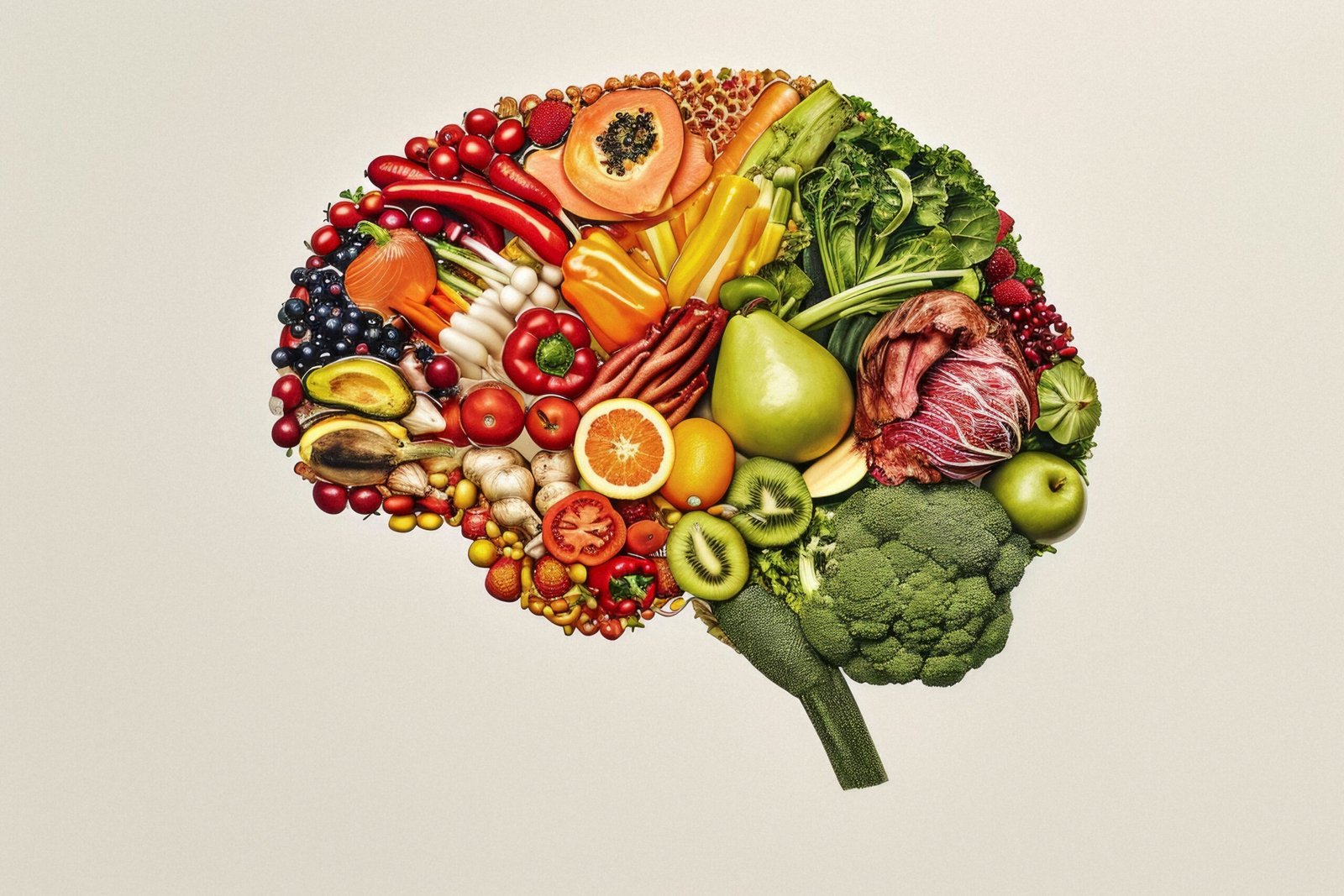By Manca Rupel (Registered Associate Nutritionist – Kings College London)
Pregnancy is one of the most nutritionally demanding periods in a woman’s life. Your body is growing a baby, supporting hormonal changes, and preparing for birth – all while trying to keep you energised and well. It’s no surprise that many mums feel overwhelmed, tired, or unsure about what they should be eating. With appetite shifts, nausea, constipation, mood changes and fluctuating energy levels, even simple food decisions can start to feel complicated.
At the same time, nutrition plays a huge role in how you feel day-to-day. The gut–brain axis (the communication pathway between your digestive system and your brain) becomes especially important during pregnancy and the months after (5). Supporting it through enough fibre, colourful whole foods, and diverse plant ingredients can make a meaningful difference to digestion, mood, immunity, and overall wellbeing (1,2).
This article breaks everything down clearly and practically: what your body needs during and after pregnancy, how hormones influence your nutrition, stage-by-stage suggestions, and how whole-food blends like FiiHii’s Frinks® can support you along the way.
Pregnancy is demanding – physically, emotionally, and nutritionally – so here’s a fast, no-stress summary of what your body needs at each stage. If you have a moment later, the full article below walks you through all the science and evidence behind these recommendations.
What Your Body Needs During Pregnancy
Meeting your nutritional needs during pregnancy is essential for supporting healthy fetal growth, maintaining your own energy levels, and reducing the risk of complications. Energy requirements rise especially in the second and third trimesters, and restricting calories is generally not recommended as it can lower neonatal birthweight. Protein becomes increasingly important for tissue growth, with balanced protein and energy supplementation shown to increase birthweight by around 7-13g per additional gram of protein. Carbohydrates – particularly lower glycaemic index sources paired with high fibre – play a role in stabilising blood sugar, and each 10 g/day increase in fibre intake is associated with a 26% reduction in gestational diabetes risk and reduced risk of preeclampsia. Essential fatty acids, especially omega-3s, support neural development and can lower the risk of preterm and early preterm birth (1,2,4).
Micronutrients also play critical roles in pregnancy. Folate is vital for DNA synthesis and preventing neural tube defects (NTD), with 400 µg/day supplementation from preconception to 12 weeks reducing NTD risk by 40 – 80%. Vitamins in the B-complex group support energy metabolism and neurological development, and deficiencies (particularly vitamin B12 below 148 pmol/L) are linked to higher risks of low birthweight and preterm birth (1,2,4).
Vitamin D deficiency is widespread, affecting up to 98% of pregnant women globally, and is associated with increased risk of preeclampsia and preterm birth, making it one of the key nutrients to keep your eye on during and after pregnancy – especially in the rainy UK. Calcium is needed for bone development and can reduce preeclampsia risk by 50% while iodine is essential for thyroid function and fetal brain development. Iron deficiency affects up to 38% of pregnant women worldwide and increases the risk of maternal anemia, preterm birth, and low birthweight. Zinc supports cell division and immune function, and supplementation reduces preterm birth risk by about 14% in women with poor baseline diets (1,2,4).
What to limit or avoid:
● Excess Protein: Very high protein intakes (over ~25% of daily energy) may increase the risk of small-for-gestational-age infants. Aim for balanced meals rather than high-protein diets (1).
● Caffeine: Keep below 200 mg/day, as higher intakes are linked with increased miscarriage and low-birthweight risk (1).
● Alcohol: No safe level is known during pregnancy – the recommendation is to avoid alcohol completely (1).
While this may seem like a lot to take in, the following sections will break down why each nutrient matters and how you can incorporate them into your daily diet in a practical, accessible way.
Hormonal Shifts and How Food Helps
Pregnancy brings dramatic hormonal shifts that affect nearly every system in the body, especially digestion, mood, immunity, and energy regulation. Rising levels of progesterone and estrogen relax smooth muscle throughout the gastrointestinal tract, slowing stomach emptying and intestinal movement. This contributes to the common symptoms seen in pregnancy such as nausea, vomiting, bloating, constipation, and heartburn, with estrogen alone increasing up to a hundred-fold by the third trimester (3).
These same hormones also reshape immune function: estrogen enhances antibody production while progesterone dampens inflammatory responses to maintain fetal tolerance, changes that can alter susceptibility to infections or autoimmune conditions (3).
After birth, these hormone levels drop sharply – one of the steepest hormonal shifts in human physiology – which can lead to emotional fluctuations, appetite changes, and increased stress sensitivity during the postpartum period (3).
Alongside hormonal changes, the maternal gut microbiota also undergoes profound adaptations. Pregnancy naturally decreases microbial diversity and reduces beneficial butyrate-producing bacteria, while increasing groups associated with energy storage and inflammation. Research shows that the maternal microbiome directly influences fetal immune and brain development, and higher microbial diversity during pregnancy has even been linked to lower anxiety and internalising behaviours in children. Factors such as stress, obesity, high-fat diets, and antibiotic use can further disrupt this microbiome balance and raise risks of complications like preterm birth, infant immune issues, and altered metabolic programming (5).
Because many of these hormonal and microbial changes are closely tied to digestion, inflammation, and blood-sugar stability, nutrition becomes a powerful tool for supporting mothers through pregnancy and after birth. Fibre, plant diversity, polyphenols, consistent eating patterns, and gentle, nutrient-dense foods can help regulate these shifts, which is why stage-specific nutrition becomes especially important (1,2,4). In the next section, we break down exactly what to eat in each trimester and during the postpartum months to support your body through these changes.
What to Eat at Each Stage (Stage-by-Stage Guide)
| Stage | What’s Happening in Your Body | Which Nutrients Help and Why |
| 1st Trimester 0 – 12 weeks | Rapid fetal neural tube development (week 4)High estrogen → nausea, vomiting, appetite changes.Progesterone slows digestion → bloating, constipation.Immune function shifts, increasing susceptibility to infection. | Folate (400 µg/day) reduces neural tube defects by 40–80%.Vitamin C supports immunity + improves iron absorption early on.Vitamin B6 may reduce nausea.Gentle fibre prevents constipation caused by slowed gut motility. |
| 2nd Trimester 13 – 27 weeks | Fetal growth accelerates.Blood volume expands → higher iron demand.Calcium transfer to the fetus increases.Vitamin D deficiency common in pregnancy | Iron reduces risk of maternal anaemia, preterm birth, and low birthweight.Vitamin C enhances iron absorption.Calcium reduces risk of preeclampsia by ≥ 50% in low-intake women.Vitamin D supports fetal bone development + reduces preeclampsia & SGA risk.Iodine supports fetal brain and thyroid development. |
| 3rd Trimester 28 – 40 weeks | Highest calorie and nutrient needs.Constipation peaks from progesterone + reduced gut motility.Omega-3 needs rise for rapid brain growth.Increased inflammation + oxidative stress. | Fibre helps relieve constipation and supports blood-glucose stability; every +10 g/day fibre reduces GDM risk by up to 26%.Omega-3 (ALA) supports fetal brain development + reduces risk of preterm birth.Antioxidants (vitamin C, polyphenols) help manage oxidative stress.Hydration supports digestion and labour preparation. |
| Postpartum & Breastfeeding | Sharp drop in estrogen & progesterone affects mood, appetite, energy.Breastfeeding requires ~+500 kcal/day.Iron stores often low after birth.Iodine & vitamin D remain essential for milk nutrient quality.Gut microbiota continues to shift post-birth. | Omega-3 (ALA) supports maternal mood + provides fat for milk composition.Iron replenishes stores + reduces fatigue.Iodine supports infant neurodevelopment through breast milk.Vitamin D supports infant bone health.High-fibre foods support digestion, the gut–brain axis, and SCFA production for mood & immune benefits. |
Source: (Seymour & Beck, n.d.)1
Practical Food Suggestions – Where can I get these nutrients?
Folate (1st Trimester Focus)
Foods: leafy greens, lentils, chickpeas, black beans, peas, oranges, kiwi, fortified cereals
Frinks®:
● Cocomangofango – kiwi, strawberries (vitamin C to support folate metabolism)
● Summer Love – citrus (vitamin C supports folate utilisation)
Vitamin B6 (Helps with nausea in 1st Trimester)
Foods: bananas, chickpeas, potatoes, spinach, poultry, fortified cereals
Frinks®:
● God Yoghurt Frink – bananas, spinach
● P-Power – prunes (contain small amounts + fibre to support nausea-related constipation)
Fibre (All Trimesters, essential in 1st & 3rd)
Foods: kiwi, pears, apples, prunes, berries, citrus, chia, flax, sesame, wholegrains, legumes
Frinks®:
● P-Power – prunes, plums, flax
● Traffic Light Punch – berries, chia
● Orchard – apples, pears, pomegranate, pumpkin seeds
● Cocomangofango – mango, pineapple, strawberries
● Summer Love – dried apricots, orange, sesame
Vitamin C (All Trimesters, especially 1st & 2nd)
Foods: citrus fruits, strawberries, kiwi, mango, pineapple, berries, peppers, tomatoes, potatoes, brussels sprouts
Frinks®:
● Cocomangofango – mango, pineapple, strawberries, kiwi
● Summer Love – orange, lime
● Traffic Light Punch – berries, lemon
Calcium (2nd Trimester focus)
Foods: dairy or fortified alternatives, tofu, sesame seeds, almonds, leafy greens
Frinks®:
● Summer Love – sesame seeds (great plant-based calcium source)
● Traffic Light Punch – chia seeds (contains calcium)
Iodine (2nd Trimester + Breastfeeding)
Foods: dairy or fortified alternatives, eggs, fish, iodised salt
Vitamin D (2nd Trimester + Postpartum)
Foods & sources: Fortified foods (UV-treated mushrooms), sunlight exposure, supplements (often recommended in pregnancy/postpartum)
Iron (Important in 2nd Trimester + postpartum)
Foods: dried apricots, pumpkin seeds, prunes, leafy greens, lentils, beans, fortified cereals, eggs/meat
Frinks®:
● Summer Love – dried apricots
● God Yoghurt Frink – spinach, hemp seeds
● Orchard – pumpkin seeds
● P-Power – prunes
Omega-3 ALA (3rd Trimester + Postpartum)
Foods: chia seeds, flaxseeds, pumpkin seeds, walnuts, soybeans, tofu
Frinks®:
● Traffic Light Punch – chia
● P-Power – flax
● Orchard – pumpkin seeds
● Summer Love – sesame
Antioxidants (3rd Trimester + Postpartum)
Foods: berries, grapes, citrus, pomegranate, cherries, plums, beetroot, spinach
Frinks®:
● Traffic Light Punch – berries, grapes
● Orchard – pomegranate
● Cocomangofango – strawberries
● Summer Love – apricots, lime
Nutrient Synergy: Why Certain Foods Work Better Together
One of the most powerful but overlooked parts of pregnancy nutrition is synergy – the way certain nutrients enhance each other’s absorption and effects when eaten together.
For example, vitamin C significantly boosts the uptake of plant-based iron, which is crucial as iron needs rise sharply in the second and third trimesters; this is why combinations like dried apricots with citrus (found in Summer Love) or pumpkin seeds with vitamin-C rich fruits (in Orchard) are so effective (6).
Similarly, omega-3 fats work best alongside polyphenols, a pairing that supports fetal brain development, reduces inflammation and can help stabilise mood in the postpartum period, naturally delivered in blends like Traffic Light Punch and P-Power (6).
Bone-supporting minerals also depend on synergy: calcium requires vitamin D for optimal use, while seeds rich in healthy fats help absorb vitamins A, E and K, seen in blends like Summer Love, Cocomangofango and the God Yoghurt Frink (6).
Finally, the combination of fibre and polyphenols enhances the growth of beneficial gut bacteria, supporting digestion, immunity and the gut–brain axis across pregnancy and postpartum (6).
Whole-food blends like FiiHii’s Frinks® bring these natural pairings together in one place, making it easier for mums to get not just the right nutrients, but the combinations that help their bodies use them most effectively.
Final Thoughts
Pregnancy and postpartum come with big physical, emotional, and hormonal plot twists – so if your nutrition hasn’t been “perfect,” congratulations… you’re a normal human. The good news? Supporting your body doesn’t require perfection. Just small, steady food choices that give you (and baby) what you both need.
Across every stage, the fundamentals stay the same: plenty of fibre, colourful whole foods, healthy fats, and the key nutrients that carry you through fetal development, digestion changes, immunity shifts, and mood swings (yes, those too).
And on the days when cooking feels like climbing Everest, when energy dips, or when your appetite is giving you mixed signals? That’s exactly where simple, whole-food blends like FiiHii’s Frinks® can step in, boosting fibre, antioxidants, and plant diversity without any slicing, peeling, or washing up.
Use this guide whenever you need a bit of clarity, reassurance, or a reminder that small nutritional wins truly count. You’re already doing the hardest job – growing and caring for a tiny human, so let nutrition be the easy part. One simple choice at a time.
Quick Nutrition Summary (For Busy Mums)
First Trimester
Focus on: folate, vitamin B6, vitamin C, gentle fibre
Why: supports early neural development, reduces nausea, helps digestion
Foods: spinach, oranges, bananas
Second Trimester
Focus on: iron + vitamin C, calcium, iodine, protein
Why: supports rapid fetal growth, blood expansion, thyroid & bone development
Foods: lentils, yoghurt, eggs
Third Trimester
Focus on: fibre, omega-3 (ALA), antioxidants, hydration
Why: helps constipation, stabilises blood sugar, supports brain development
Foods: prunes, chia seeds, berries
Postpartum & Breastfeeding
Focus on: iron, iodine, vitamin D, omega-3 (ALA), protein, high-fibre foods
Why: supports mood, energy, milk quality, and healing
Foods: salmon (if eating fish), fortified milk, oats
Where whole-food blends can help
FiiHii’s Frinks® naturally provide:
Fibre, vitamin C, antioxidants, plant diversity, ALA-rich seeds, and easy-to-digest fruit – ideal support for days when eating enough feels harder
References
- Mousa, A., Naqash, A., & Lim, S. (2019). Macronutrient and micronutrient intake during pregnancy: An overview of recent evidence. In Nutrients (Vol. 11, Issue 2). MDPI AG. https://doi.org/10.3390/nu11020443
- de Seymour, J. v, & Beck, K. L. (n.d.). Nutrition in pregnancy. https://nap.nationalacademies.org/resource/12584/Report-
- Jee, S. B., & Sawal, A. (2024). Physiological Changes in Pregnant Women Due to Hormonal Changes. Cureus. https://doi.org/10.7759/cureus.55544
- Likhar, A., & Patil, M. S. (2022). Importance of Maternal Nutrition in the First 1,000 Days of Life and Its Effects on Child Development: A Narrative Review. Cureus. https://doi.org/10.7759/cureus.30083
- Sajdel-Sulkowska, E. M. (2023). The Impact of Maternal Gut Microbiota during Pregnancy on Fetal Gut–Brain Axis Development and Life-Long Health Outcomes. In Microorganisms (Vol. 11, Issue 9). Multidisciplinary Digital Publishing Institute (MDPI). https://doi.org/10.3390/microorganisms11092199
- Nair, K. M., & Augustine, L. F. (2018). Food synergies for improving bioavailability of micronutrients from plant foods. Food Chemistry, 238, 180–185. https://doi.org/10.1016/j.foodchem.2016.09.115





